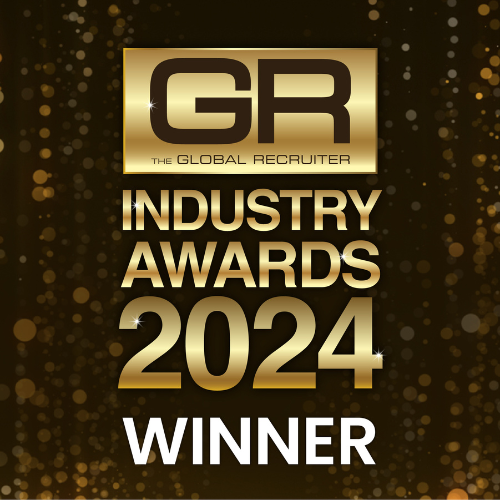Diversity Is Good For Business
October is Global Diversity Awareness Month, a time to acknowledge and celebrate the unique experiences that can benefit a workplace that’s open to people of all ethnicities, culture, religions, ages, abilities, preferences and backgrounds.
Many businesses will acknowledge the importance of diversity – maybe even holding events or posting on social media for Global Diversity Awareness Month (or similar calendar events like Black History Month, Mental Health Awareness Day or Pride), without actually making tangible efforts to improve their own hiring processes, workplace culture or company policies.
Despite the wording of these posts, many still just see it as a box-ticking exercise, or an annoyance that they have to put up with for social marketing. But it should actually be a vital part of your business, particularly when it comes to hiring new people, whether you’re looking for engineering professionals, tech specialists or sales professionals. When you recognise the benefits see that it could be the most important thing you do to progress your business.
Why Is Diversity Good For Business?
Diverse workplaces enjoy greater innovation, better problem solving and improved staff retention. They also open up their own hiring prospects, becoming a more appealing employer brand for professionals in their field.
The reasons for success are obvious: those that embrace diversity enjoy the views, experiences and skillsets of people from a wider range of backgrounds, while a more homogeneous collective would have a narrower scope to generate ideas.
Diversity impacts culture: people bring their own preferences and workplace ideas – even the unspoken “rules” that a team or group might develop themselves are often based on cultural and social backgrounds. Limiting your workforce to these creates an atmosphere that can be offputting to those who don’t fit in. And if that includes someone whose skills and experiences are needed for an essential role, you could find yourself struggling to hire and retain the very best.
What can you do to create a more inclusive hiring process?
As staffing specialists for the Technology, Advanced Engineering and Energy sectors, we work with a lot of clients who are looking to improve their own businesses ED&I prospects – whether they have a “traditional” workforce that they’re trying to open up, or their pioneering new fields and struggling to find niche talent in an oversaturated market.
So we find ourselves working closely with them, not just to find them the best candidates, but to advise them on their own employer brand to ensure that they can better attract and retain the best professionals. It’s one of the services we can support with as part of our flexible offering.
We also want to help all businesses, which is why we’ll be sharing some of our best tips for inclusive hiring practices all throughout October on our LinkedIn.
Here are a few of the most important ones, that you can start integrating into your business processes today:
- Remove unconscious bias from job descriptions
Your job descriptions may be detailed and you may think they’re enticing to the right people, but there are often terms and phrases that we unconsciously include based on our own backgrounds or experiences, that might turn others off.
Areas to avoid:
- Gendered language, including job titles such as “salesman”, “chairman” – replace with “sales person”, “sales professional” etc. Use “you” when talking about the ideal candidate instead of “he” or “she”
- Masculine-coded words like “dominant”, “competitive” – replace with gender-neutral terms like “collaborative”, “dedicated”, “passionate”.
- Culture-specific wording that might put off people from outside your sphere – including corporate phrasing and jargon.
- Age-biased language like “energetic”, “fun”, “millennial”, “digital native” – replace with neutral terms like “motivated”, “adaptable”. Only used “experienced” or “recent graduate” where absolutely necessary.
- Language that could discourage people with disabilities or people who are neurodivergent. Instead offer accommodations like “we are committed to providing reasonable accommodations for applicants with disabilities."
Also be mindful of what is absolutely necessary to do the role, such as a requirement to have a degree in a particular field which might put off people with great experience, but who didn’t have the opportunity to go to university. Ask yourself if every requirement within the job description is strictly necessary and if it isn’t – leave it out. Remember that even if you put it under a “desirable” heading, that may be enough to put people off applying.
2. Introduce bias awareness training
Removing bias from job descriptions is a great start, but what about when it comes to an interview situation? How are you going to ensure you don’t fall into the same trap without a tool or expert available to you?
It might be wise to invest in some training. External support can teach you and other hiring managers at your company how to look out for unconscious bias, and how to avoid it during the hiring process.
3. Structured interviews
A great interview can be an easy conversation – when everyone gets on, understands each other and “clicks” on a personal level, the interview can sail along and make for an easy decision.
But as important as it is to find people who you can get on well with, relying on that sort of natural rapport building in an interview situation could be losing you some great candidates with diverse perspectives. Whether it’s because they don’t share the same backgrounds and cultural references as you, or they are neurodivergent and struggle with some aspects of the interview process, or even just because job interviews are intrinsically difficult and they might be nervous.
To create a fairer and more balanced hiring process, it can be best to conduct a very structured interview with set questions that you ask everyone. Some companies even provide the questions to the interviewee in advance so that they have the opportunity to prepare, and aren’t put on the spot.
In addition, having someone else in the interview with you can help give you another perspective. Bring diversity into the interview yourself so that you can benefit from the decision making and wider points of view that we mentioned above – and also show to the candidate that you have an open and diverse culture to make them feel more comfortable.
4. Accessible interviews
Does your interview have to take place in the office if the job is going to be remote? Do you need multiple rounds of interviews, and do these have to take place in the middle of the day?
Remember that there are many challenges someone may face in getting to an interview, particularly if they have disabilities, parental responsibilities and current jobs.
Consider offering remote or virtual interviews and providing accommodations for people with disabilities, such as assistive technology or wheelchair accessibility.
5. Hire from a diverse candidate pool
Referrals from your current staff or network can be a great way to find similar professionals, but if you want to grow your business and bring in a more diverse workforce, you need to be able to cast a wider net.
Working with a specialist staffing company that’s committed to ED&I best practices can give you access to a network far beyond what you can find yourself. Our global database of candidates encompasses all people with the skills and qualifications for specialist jobs.
Just as importantly is making sure you’re finding a diverse reach from within that candidate pool. As above, using bias-free job descriptions is essential, and by the same token, removing unconscious bias from candidate profiles is important. We can provide the essential information about a candidate’s capabilities without discussing things like their gender, ethnicities, backgrounds or other factors that might create an unconscious bias in a hiring manager.
6. Data tracking and continuous improvement
Many businesses don’t want to start tracking the diversity within their current workforce, either because they don’t want to put the work in to do so properly or they worry about the awkwardness of setting up that reporting. But it’s actually really important to understand where you are now and be able to measure the improvement as you set diversity goals.
Anonymous surveys with your employees can help you understand their backgrounds, and also their feelings about your current culture, policies and procedures. There are various online tools that let you set these up and gather feedback completely anonymously, which allows people to share their real views – we use SurveySparrow to set up our own diversity dimensions surveys, which we publish in our annual ED&I report . By making our own report public we’re able to hold ourselves accountable to the changes we want to make, and prove authentically that we are committed to creating a more diverse and inclusive workplace.
We can work with you to understand your own workplace data and set targets for the future.
7. Promote inclusivity
Your employer brand determines whether candidates will want to work with you or not. It tells people what it’s like to work for you and showcases your own culture. So when you’re hiring – or will be expanding your workforce in the future – it’s really important to promote your employer brand and showcase your diversity initiatives.
Talk about your commitments to diversity. Show off your benefits. Share pictures and testimonials of your people in the workplace. Prove to people that your business is a great place to work and that they should be excited to join you.
There are many ways to show off your employer brand – on your website is essential, through social media channels and by creating brochures showing off your internal benefits.
You can also talk about inclusivity and diversity through articles, videos and podcasts – sharing these on your company social media channels (and encouraging your teams to share them as well), and celebrating events like Global Diversity Awareness Month as a way to be part of the conversation and demonstrate your own values to potential new hires.
Work with Amoria Bond
All of the above are great ways you can ensure a more diverse workplace, and Amoria Bond can help you with all of them. Book a call with one of our staffing specialists to discuss your goals, challenges and opportunities and not only will you be able to access our diverse global network of professionals, but our teams can advise you on your own hiring process while delivering bias-free, diverse candidate profiles suited to your requirements.
Get in touch today. https://www.amoriabond.com/en/contact/






